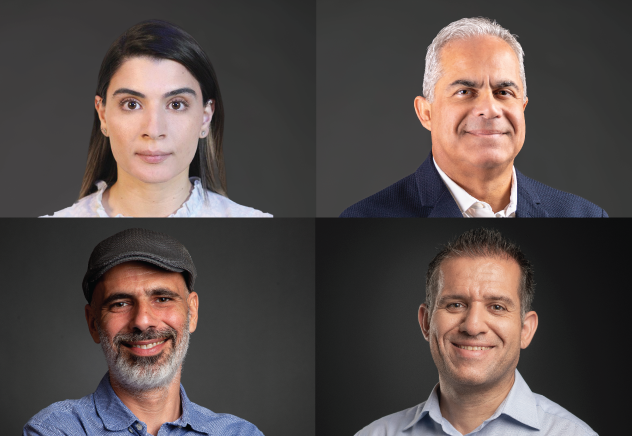
Frederick University Academics Ranked Among the World’s Top Scientists

Within the top 2% of scientists in their field, according to Stanford University ranking. Frederick University warmly congratulates its faculty members who are included in this year’s list of the world’s leading scientists, published by Stanford University.
Professor Andreas Poullikkas and Associate Professor Paris A. Fokaides, both from the Department of Mechanical Engineering, Associate Professor Haris Papadopoulos from the Department of Electrical Engineering, Computer Engineering and Informatics, and Dr. Angeliki Kylili, researcher at the Department of Civil Engineering, have been ranked among the world’s top academics, according to the 2025 Stanford list. The ranking evaluates both lifetime career impact and annual scientific influence, based on their published research work.
The global ranking of top scientists is published annually by a research team at Stanford University, which assesses the performance of all scientists worldwide based on their research output. The 2025 publication includes the 100,000 top scientists across all scientific fields, as well as the top 2% within each individual field. Its purpose is to highlight leading researchers in disciplines such as chemistry, engineering, economics, energy, and more. This evaluation is considered the most reliable global reference in the academic field for assessing researchers.
Prof. Poullikkas, Dr. Fokaides, and Dr. Kylili are included in the top 2% list for their research in the field of Energy, while Dr. Papadopoulos is ranked for his work in Artificial Intelligence and Image Processing.
Frederick University congratulates the four academics for this important distinction and for their dedicated and methodical contribution to research.
Following the announcement of the list, Professor George Demosthenous, Rector of Frederick University, stated: “I warmly congratulate my esteemed colleagues on this global distinction. Their success and the international recognition of their scientific work in Energy and Artificial Intelligence are neither accidental nor occasional. They are the result of systematic and painstaking efforts. Their achievement confirms the high level of research carried out at Frederick University and the constant pursuit and production of new knowledge, which is a fundamental pillar of our university. We are particularly proud of the interdisciplinary and multifaceted research activity within Frederick University’s School of Engineering, which has contributed to our global #95 position in Goal 7: Affordable and Clean Energy in the Times Higher Education Impact Rankings 2025. Expanding our research activity remains a priority and strategic objective, and all our faculty members enjoy our full support in advancing their research, teaching, and international recognition.”
Professor Andreas Poullikkas, Professor of Energy Systems, served for several years as Chairman of the Cyprus Energy Regulatory Authority (CERA) and as Chairman of the Cyprus Energy Strategy Council. He has authored numerous scientific publications in high-impact international journals and conference proceedings, as well as books on energy policy, renewable energy, energy storage, and sustainable energy technologies. He has taught at Harvard University and the Cyprus University of Technology, and previously founded and headed the Research and Development Department of the Electricity Authority of Cyprus. He is Editor of the international journals Discover Energy (Springer Nature) and Renewable and Sustainable Energy Reviews (Elsevier), and a member of the Editorial Board of Sustainable Energy Technologies and Assessments. He currently leads the newly established H2Zero Research Unit at Frederick University, which aims to develop innovative green hydrogen solutions and promote net-zero carbon technologies.
Associate Professor Paris A. Fokaides has authored numerous scientific articles, book chapters, and books in top international journals, including Nature. He has secured over €8 million in more than 40 research projects at national and European level, focusing on innovative energy technologies and sustainability analysis of the built environment. Since 2012, he has led the Sustainable Energy Research Group (www.serg-web.com/) at Frederick University, which now counts over 25 researchers and has become a reference point in energy research both in Cyprus and in Europe. Dr. Fokaides is also Editor-in-Chief of the International Journal of Sustainable Energy (Taylor & Francis). In 2021, he founded Euphyia Tech Ltd, a research spin-off company of Frederick University, which develops innovative solutions for assessing the sustainability and intelligence of the built environment.
Associate Professor Haris Papadopoulos directs the Computational Intelligence (COIN) Lab at Frederick University’s Department of Electrical Engineering, Computer Engineering and Informatics and holds a Visiting Professor position at the Department of Computer Science, Royal Holloway, University of London. His research focuses primarily on developing advanced Machine Learning techniques that provide reliable uncertainty estimation for predictions under minimal assumptions, and applying them to a wide range of scientific challenges. He has published more than 80 papers in prestigious international journals and conferences in the field of Machine Learning. He has participated in funded research projects with a total budget exceeding €6 million, often serving as coordinator and lead investigator. His lab has secured more than €1.5 million in direct research funding in the last five years.
Dr. Angeliki Kylili, a PhD graduate of Frederick University’s Department of Civil Engineering and former member of the Sustainable Energy Research Group, focuses her research on building energy efficiency, renewable energy, and sustainability of the built environment. She has authored scientific publications in high-impact international journals and participated in significant national and European research projects.

